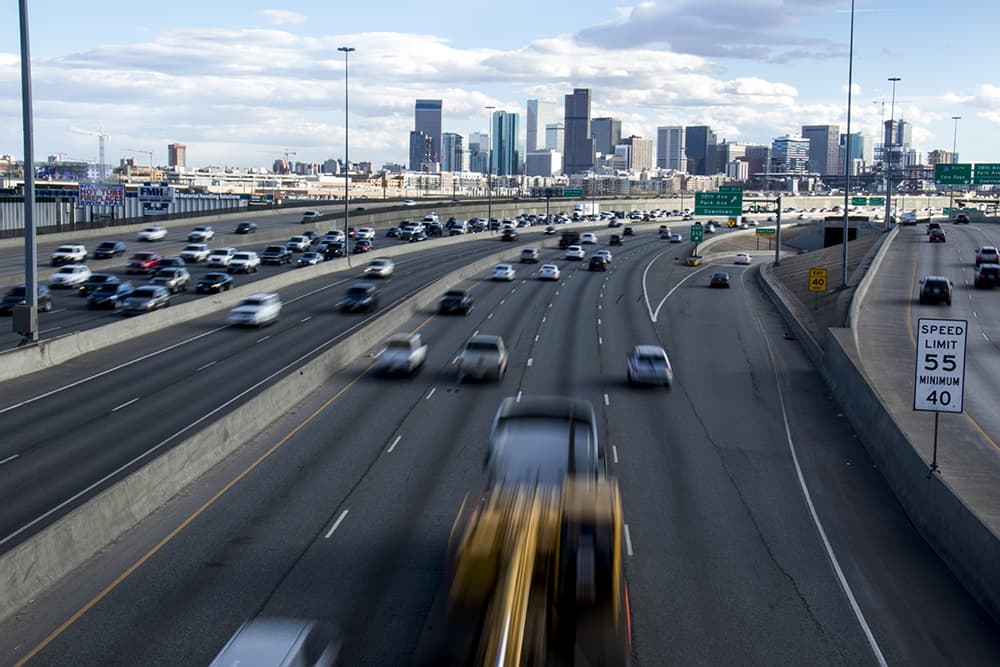
By Brian Eason
A broad coalition of Colorado business groups has endorsed a $5 billion transportation measure moving through the state legislature, boosting its chances of passage even as top Democrats continued to express "reservations" with the plan.
But while political hurdles remain, Monday's announcement eliminated a key roadblock that stymied political negotiations at the divided legislature for much of the year.
"What you see is an incredible amount of unanimity," Mike Kopp said, the president and CEO of Colorado Concern at a morning press conference. "...Senate Bill 1 is historic. This is the largest transportation bill in 20 years."
Previously, business groups including Colorado Concern and the Denver Metro Chamber of Commerce had been pushing competing plans to raise taxes to pay for the state's infrastructure needs, creating an impasse that promised to clutter the November ballot with proposals. Meanwhile, Republican lawmakers for months have been pushing a plan of their own to borrow up to $3.5 billion against existing state revenue, over the objections of Democrats who insist that the question of new taxes should be sent to voters.
In late March, the state Senate struck a bipartisan deal, voting unanimously to approve a bill that would set aside $250 million annually for transportation over 20 years. If voters agree to bond against it, that amount would cover the $5 billion needed to repay the proposed borrowing costs. If not, the money would be transferred to the state highway fund for road maintenance. The compromise would also delay sending voters a referendum to issue the bonds until 2019, a concession from Republicans that effectively gives business groups the chance to go to the ballot for a potential tax hike this November.
"From the Chamber's point of view, I don't believe the state has enough revenue to solve everything we need to solve on transportation," Kelly Brough said, the Denver Metro Chamber president. But it's still not clear what tax hike — if any — voters will get the chance to consider. Brough's group has filed initiatives to raise sales taxes by varying amounts, while Colorado Concern and others prefer to raise vehicle ownership taxes to pay for road needs.
Disagreements over the legislation remain. House Democrats want a large share of the money earmarked for local governments and mass transit — something Republicans have resisted. And on Monday, top Democrats and liberal groups outside the Capitol reiterated their concerns that a long-term commitment to borrowing without new taxes could force lawmakers to cut spending on schools and other public services the next time there's an economic downturn.
"Senate Bill 1 puts all our eggs in one basket, and it lacks sufficient safeguards to assure that we won't be cutting K-12, higher education, and other critical needs when the next recession comes," said Rep. Faith Winter, D-Westminster, who chairs the House Transportation and Energy Committee. "We need a responsible long-term solution for our roads."
Colorado's infrastructure needs are estimated at $9 billion over the next decade. So even if lawmakers approve the bill, more funding will be needed to keep up with the state's growth. The bill would repeal $1.9 billion in borrowing approved last year, swapping out for the larger bond issuances.











